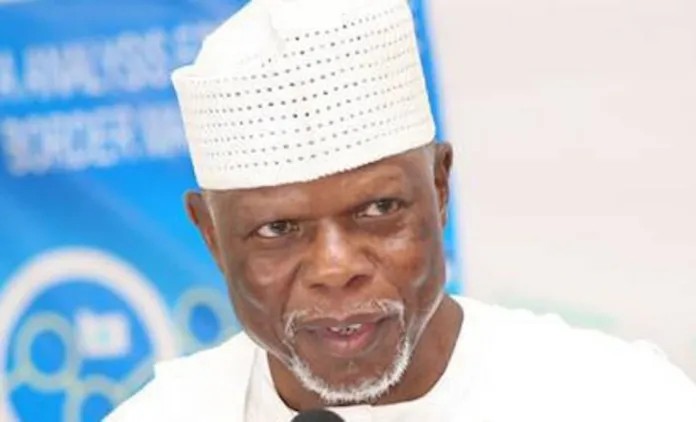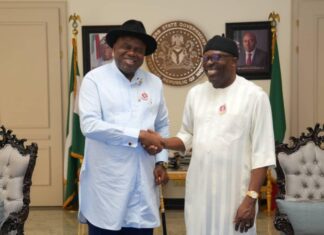CG Customs insisted that unlike previous attempts at managing scanners, officers have been trained up to level 2 maintenance capability.
By Uzor Odigbo
Comptroller General of Nigeria Customs Service Col. Hameed Ali (rtd) has tasked traders to desist from sharp practice that would compromise the latest attempt at introduction of Scanners into the Port system.
He expressed gratitude to the federal government for procuring fully owned Three Mobile NUCTECH Scanning machines for the Service in Nigeria.
He said, ” let me reiterate the importance of willful compliance to extant laws regarding International trade. We are ready to do all we can to assist compliant traders. We know that this equipment will be of special benefit to manufacturers who import homogenous items in large volumes.
“We also know that importers of high risk goods will no longer have any place to hide. So we are hereby putting recalcitrant traders on notice
They either change, or be ready to face the full consequence of their actions.”
The Customs CG also reminded guests that security is of immense concern to all well meaning citizens.
Since good number of items which pose a threat to national security find their way through our various entry points, “we believe that the equipment that has been commissioned will greatly enhance capacity to defend our dear nation.
According to him, phase one of the e-customs modernization shall see the deployment of scanners to all sea ports, airports and approved land borders. “We shall also witness the launch of a central data management system when live feeds from our ports and borders can be viewed and monitored from our headquarters”
“We are therefore grateful for the support of our supervising Ministry and the untiring efforts of the Minister of Finance, Budget and National Planning in making this dream a reality. We want to assure her and all Nigerians that this equipment will be put to good use for the benefit of all”
“This ensures that the day to day management of these machines will be proficiently handled by officers who have been trained and certified by the manufacturers to carry out basic maintenance.
We appreciate our partners the terminal operators, who have taken the pains to adjust their operations to suit the innovations of the moment. Our continuous collaboration will ensure that cargos are promptly delivered for scanning and evacuated from the ports as soon as they are certified to be compliant by our officers and other regulatory agencies.”
Recall that the three scanners were commissioned in Apapa, Lagos on Tuesday by the Finance Minister Mrs Zainab Ahmed.
While expressing his gratitude Col Ali said,
“It gives me great pleasure to be here with you and to witness the commissioning of our newly installed mobile scanners. Indeed, for all of us who in one way or the other are involved in the facilitation of trade across international borders, today’s event will go down in history as a watershed moment. Not because the scanning of goods are new to us in Nigeria, but because for the first time”
According to the Customs CG, Nigeria Customs Service will be fully responsible for the management and operations of this equipment, adding that as part of the reform strategy of the administration, the service were compelled to adopt technology as the linchpin for trade facilitation, by recognizing its strategic importance, we have chosen to embrace it in its entirety, he said.
He reiterated that the Service Modernization project seeks to automate all processes and procedures, of which the inspection of imports and exports is fundamental.
“We know that to remain competitive our ports have to be more effective and efficient. As trade increases in volume, so must our capacity for facilitation.
His full address read this: “Efficient cargo management and the full automation of Customs and other regulatory processes is guaranteed to bring down the cost of clearing, and ultimately the prices of goods in the open market, an occurrence that will be beneficial to consumers in Nigeria.
We also understand that technology should be deployed in a manner most suitable to our needs and environment. This is why we have developed a standard operating procedure (SOP) for the use of these scanners. Our SOPs provide all stakeholders with a working guide as to their individual responsibilities. From Customs officers, clearing agents, shipping companies, to terminal operators, roles are defined to show who should be doing what, where, how and when. It is the spelling out of these roles and how they should be performed that will ensure that we get the maximum benefits from using these non intrusive examination equipment.
As the lead agency in trade facilitation, we are constantly in the business of reinventing ourselves. Not satisfied with the achievements of the past, our focus is on making the present great and the future greater. However, because we acknowledge the importance of partnering with other relevant government regulatory agencies, we have created windows that will enable connectivity to our systems. Where physical joint examinations were previously conducted by all relevant agencies, the scanning process will not only reduce the stress associated with positioning, off loading and taking inventory of containers. It will store recorded images in a safe format easily accessible by all agencies from the comfort of their offices. It makes the auditing of transactions using these images easier and will definitely checkmate attempts by non compliant traders to cheat the system.















